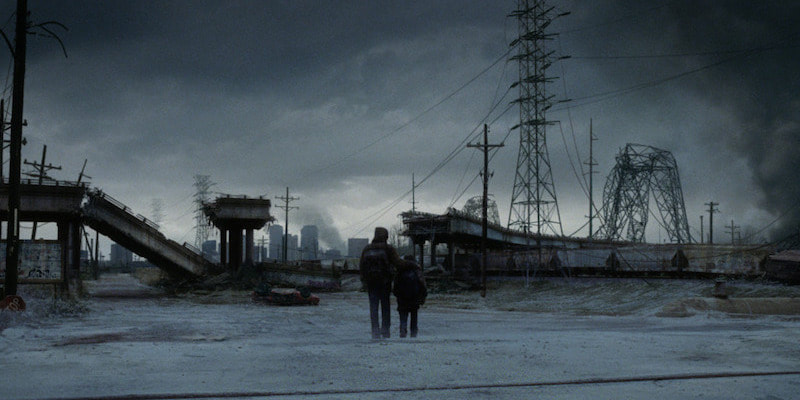Set in the wake of an unspecified apocalypse – most likely a nuclear war, even though the film adaptation of the novel widened the scope to include the trendy warnings of climate-induced catastrophe – The Road tells the stark story of a man and his son desperately struggling to stay alive and reach some unknown destination in a world in which there is essentially nowhere to go and fundamentally nothing left to live for.
McCarthy is a strange writer; a breed all to himself. Dark poetic flourishes that shrivel into the unpoetic beauty lace the foundation of his terse and Hemingwayesque style. Thematically, he stands within that small, select group of storytellers that recognizes and understands the devastating evil that is Sorathic destruction. In his other novels, McCarthy confines Sorath to senseless, savage upsurges that erupt onto the façade of real-world tranquility like volcanic explosions; in The Road, McCarthy gives destruction free reign over God and Creation, depicting a world in which Sorath reigns triumphant:
It took two days to cross that ashen scabland. The road beyond ran along the crest of the ridge where the barren woodland fell away on every side. It’s snowing, the boy said. He looked at the sky. A single gray flake sifting down. He caught it in his hand and watched it expire there like the last host of christendom.
On the surface, The Road is a story of physical survival – a narrative focused on the instinct to stay alive in a world where there is nothing for which to live. Beneath the surface, McCarthy’s post-Armageddon tale explores the apparent impossibility of remaining spiritually aligned with God and Creation when both God and Creation appear to be no more.
The central motif that attests to this spiritual theme is “the fire”. Invisible and only referred to, the fire becomes the sole motivation and hope through which the story and its characters cling to meaning. At the most obvious level, the fire represents the love between the man and his son – one of the only examples of human love left in the world.
The man and the boy both guard the fire as they stumble ceaselessly through senseless landscapes of death and despair. They remind each other that they are “carrying the fire” and use this designation to distinguish themselves from the bad guys who -- to paraphrase a line from Charles Bukowski’s Dinosauria, We -- are radiated men eating the flesh of other radiated men.
There are certain boundaries the man will not cross as he struggles to keep his son alive in the ravaged world of The Road, yet his focused love and fixation often reduce his behavior to the animal level of ruthless survival. Here McCarthy utilizes the boy and transforms him into the barely audible whisperings of God – survival, yes, but not at any cost.
Within the borders of this dark world gone to hell, the fire the boy safeguards glows like a muted beacon, a soft reminder of the reality of life beyond survival. A soft reminder that Sorath’s destruction can only be countered by love, faith, hope, and creativity, and that as long as these exist, God exists, as does Creation.


 RSS Feed
RSS Feed

